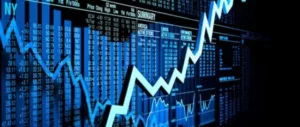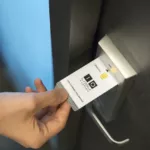The foreign exchange market is the place where currencies are traded. It is a market where participants buy, sell, and exchange currencies. Currencies need to be exchanged in order to conduct business and foreign trade. Tourists know very well of the drill, as they exchange the equivalent value of their nation’s currency for their travel destination’s locally accepted currency. As for business owners, retail industries for instance, they use the forex market when importing and exporting goods.
The need to exchange currencies is the major reason why the forex market is the largest and most liquid financial market in the world. When compared to the size of other markets, like the stock market, the forex market is way massive. It facilitates the trade of trillions of dollars worth of transactions per day.
How Forex Trading works
When you trade equities, you bet on the success of a company which affects the stock price in equities. When you trade currencies, you bet on a country’s economic performance which affects the value of its currency, and hence affects your exchange.
Traders who speculate on forex attempt to buy currencies they think will increase in value and sell currencies they think will decrease in value. For example, with 1 EUR, you can buy 1.19 USD. The exchange rate can change at any second. It’s the banks which are continuously adjusting to the rhythms of supply and demand, which are responsible for the exchange fluctuation.
1. What are the factors that contribute to the change in the FX Market
- Monetary Policy
- Political Stability
- Economic outlook
- Interest Rates
- Imports and Exports
2. How to read currency pairs
For example, you want have US dollars and you want to exhange your money to Euros. This is how currency pair is written:
EUR/USD
The stronger currency written (EUR) is called your “base currency” and the weaker currency (USD) is called your “counter currency.” The base refers to your target currency while the counter refers to the currency you have to convert.
Let’s say you bet that the EUR will get stronger against the USD. When you believe that one currency will rise against another currency, you buy the stronger (base) and you sell the weak one (counter).
For example, you risk 10,000 EUR. Before you placed your bet five minutes ago, the 10,000 EUR would’ve bought you 11,911 USD. But after your bet is finalized, your 10,000 EUR is now equivalent to 11,918 USD. In just a short span of five minutes, you made a profit of 7 USD as the EUR gained 7 pips (percentage in point) against the dollar. 1 pip represents 1% or 1% or 0.0001 which is the smallest amount of fluctuation used by forex and a unit used to express the price change of an exchange rate.
3. Where does FX Trading take place:
Unlike the stock market, there is no central location for trading forex like a stock exchange. Instead, money is traded through a network of international dealers and brokers and each take individual commissions. The sale of the currency is handled by an outside brokerage firm and all you have to do is to buy a EUR/USD pair.
4. When does FX Trading take place:
You can trade currencies 24h a day, 5 days a week since there’s an extremely high amount of liquidity in the FX market.
The Major Risk In Forex Trading: Leverage
Leverage is both a positive thing and a negative thing.
Let’s say you are so sure that the EUR will get much stronger against the dollar. You’re confident to risk 100,000 EUR but you just can’t afford it. The brokerage firms allow you to take this risk and lend you the hundred thousand EUR. All they need from you is a 1000 EUR asa collateral deposit . From the brokerage firms, you can borrow a hundred to four hundred times of the amount of your initial collateral deposit. If you want to bet 50K EUR with 1K EUR deposit, then you exercise leverage ratio of 50:1
Borrowed funds are used to amplify potential returms but they can also magnify the potential losses of trading positions. If the value of your positiopn grows due to market movements, then there wouldn’t be any problem. But if your position loses value to the point where you no longer meet the minimum margin requirements, then your broker can liquidate assets to help assure you don’t lose more money in your margin account.








